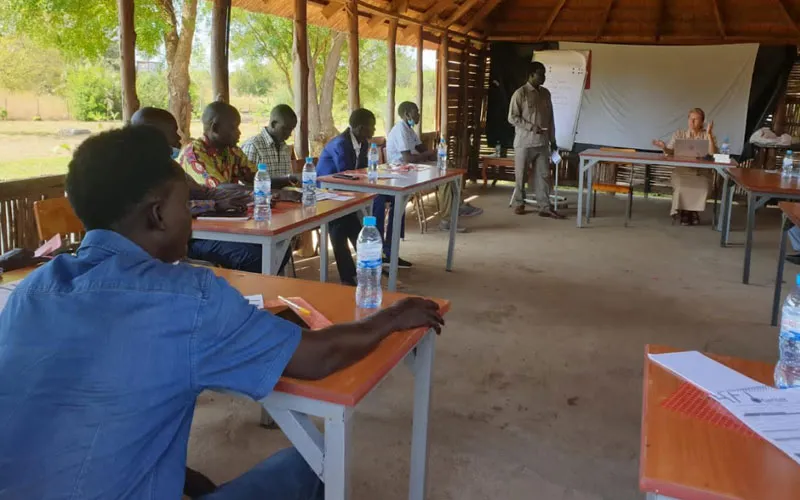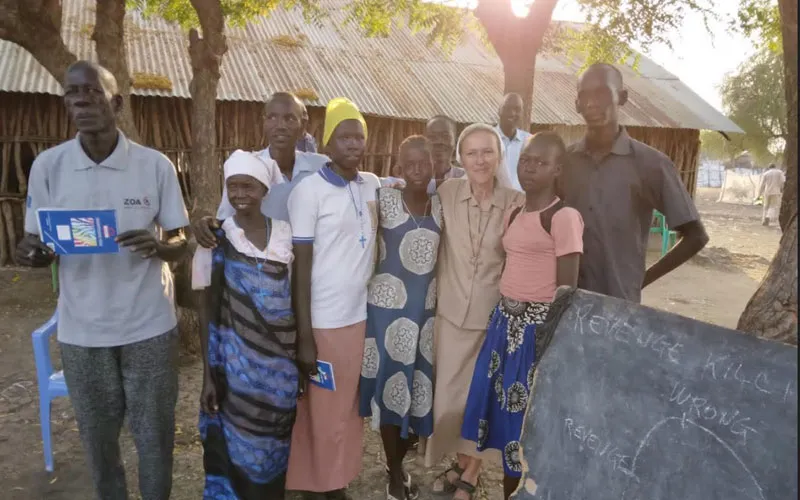She added, “In 2022, we are going to work on the formation of personnel in the sub offices for different places. The Diocese of Malakal is a very huge territory and we have a challenge in reaching out.”
In a January 9 report, Sr. Balatti narrated the challenges encountered in efforts to restore peace in the South Sudan saying that it becomes difficult for dialogue especially when people are directly affected by war.
 Participants during peacebuilding workshop organized by Caritas Malakal, South Sudan. Credit: Sr. Elena Balatti, CMS
Participants during peacebuilding workshop organized by Caritas Malakal, South Sudan. Credit: Sr. Elena Balatti, CMS
“Dialogue is extremely difficult when people have been directly affected by the events of the war including pain, suffering, loss of possessions, of their social status, of affections,” the Caritas official said in the Vatican News report.
In the January 11 interview with ACI Africa, the Catholic Nun who has been involved in fundraising for the revival of Sout al Mahaba Radio of Malakal Diocese that was vandalized and looted in February 2014 also noted that some people, despite having lost their loved ones and suffered in various other ways owing to the conflict in various parts of South Sudan, still choose to embrace peace.
(Story continues below)
She further explained that those who choose peace despite having been affected by violence have the interest of the country at heart and are aware that reconciliation is key for the country’s development.
“It is always a success story when in a workshop or conversation conducted in the church, people are saying, yes this has happened but we are open to peace and reconciliation with the other group,” Sr. Balatti told ACI Africa, and added, “I have experienced this a number of times… I consider this a big success.”
Hinting to the talks that resulted in the September 2018 Revitalized Agreement on the Resolution of Conflict in South Sudan (R-ARCSS), she further said that the Catholic Church as a member of the South Sudan Council of Churches (SSCC) has participated in the implementation of the peace action plan since 2017.
SSCC, the Comboni Missionary Sister said, is preparing booklets summarizing peacebuilding activities taking place all over the country to create more awareness on the need for a peaceful coexistence in the East-Central African nation that gained independence from Sudan in July 2011.
Silas Mwale Isenjia is a Kenyan journalist with a great zeal and interest for Catholic Church related communication. He holds a Bachelor’s Degree in Linguistics, Media and Communication from Moi University in Kenya. Silas has vast experience in the Media production industry. He currently works as a Journalist for ACI Africa.





 Participants during peacebuilding workshop organized by Caritas Malakal, South Sudan. Credit: Sr. Elena Balatti, CMS
Participants during peacebuilding workshop organized by Caritas Malakal, South Sudan. Credit: Sr. Elena Balatti, CMS


